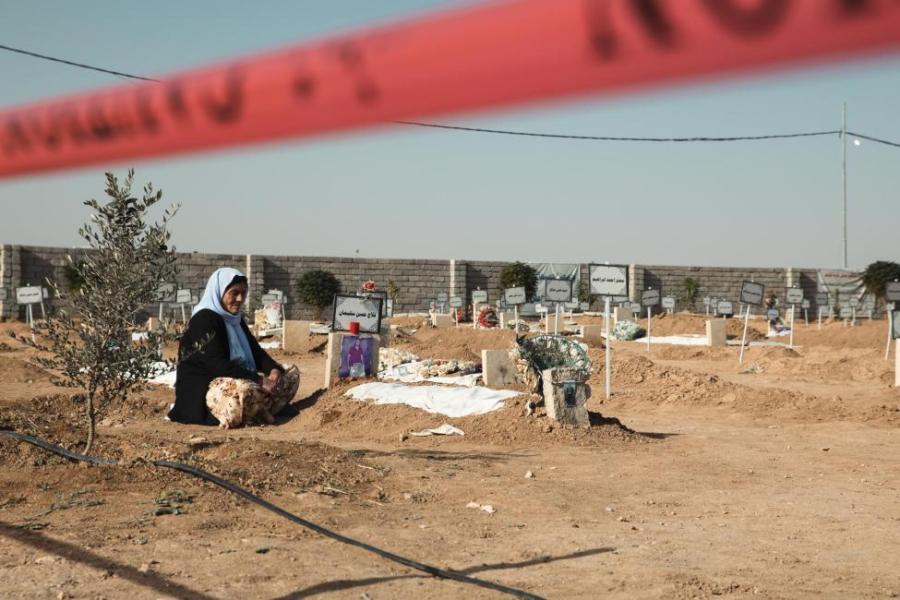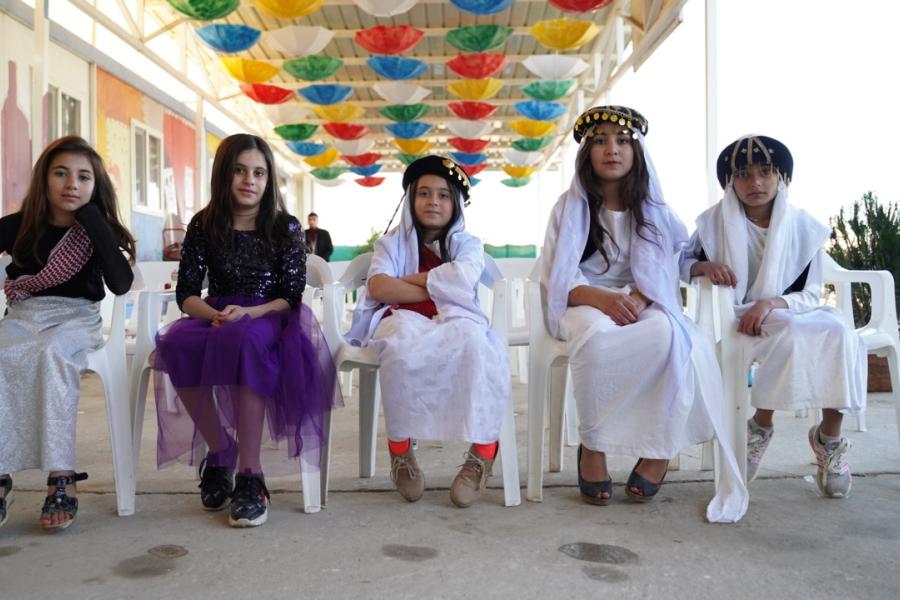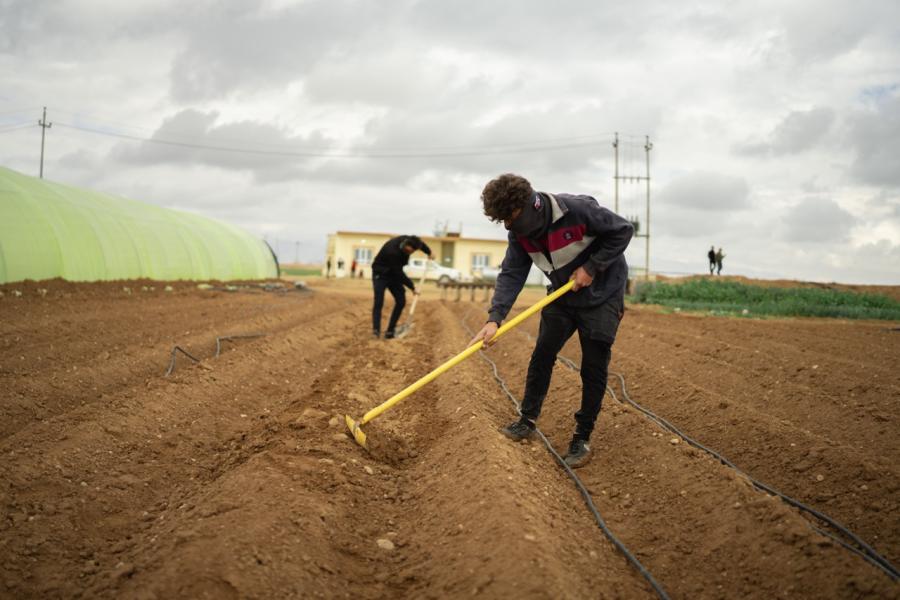Nine Years in Remembrance, the Road Ahead for Yezidi Genocide Survivors in Iraq
03 August 2023

Baghdad: On this ninth anniversary of the Sinjar massacre – nine years since Daesh initiated its genocidal campaign against Iraq’s Yezidi ethnoreligious minority – we reflect on the strides made in support of survivors and acknowledge their persistent, pressing needs.
This year, between August 1st and 3rd, survivors and community groups across Iraq came together to organize commemorative events ranging from silent vigils to afforestation campaigns to panel discussions on the way forward for survivors. In Baghdad, the Office of the Prime Minister held a commemoration event attended by the highest levels of Government and UN representation. In Erbil, the Kurdistan Regional Government organized a commemoration together with the Yezidi civil society organization, Yazda. This breadth and richness of engagement underscores our collective commitment to honour victims, stand in solidarity with survivors and work together towards a future where such atrocities never happen again.
An integral part of Iraq’s rich history and diversity, these communities have displayed remarkable resilience in the face of unimaginable horrors. As we reflect on the past nine years, we celebrate the progress achieved, while acknowledging the needs that continue to burden those affected.

Significant strides have been made in supporting survivors to rebuild their lives. The adoption of the Yezidi Survivors Law (YSL) in 2021 – which aims to advance transitional justice and provides for monetary reparations, a plot of land, education and employment assistance and access to health and mental health services for survivors – and the subsequent establishment of the Directorate of Survivors' Affairs remain a testament to the commitment of the Government of Iraq to recognize and address the suffering endured by Yezidis and other minority groups under Daesh. As of this year, the Directorate has verified 900 survivors through its application process, distributed salary payments promised under the Law to 650 verified survivors and activated a formal referral system through which YSL beneficiaries can connect to mental health and psychosocial support services in their areas of residence.
The International Organization for Migration (IOM) has been working alongside the Directorate, Yezidi civil society, community-based groups and international partners to provide assistance and create conditions conducive to the return of displaced survivors. Last month, IOM supported the voluntary return of 89 Yezidi families from camps in Duhok back to Sinjar, where they were welcomed with tears, laughter and song by family, friends and neighbours long awaiting their return.
Still, significant challenges persist. Over 200,000 Yezidis still live in displacement, both within and outside camps in the Kurdistan Region of Iraq. Last month’s joyous homecoming notwithstanding, rates of return to Sinjar remain low. The destruction of infrastructure and homes in Sinjar City and surrounding areas has diminished the availability of basic services and limited access to running water, electricity, healthcare and education.
IOM continues to work to make durable solutions possible for survivors, including through basic service restoration, health care provision, economic assistance and small business support, memorialization efforts, peacebuilding activities and more.

The restoration of housing, land and property documentation is a critical aspect of supporting durable solutions to displacement – especially for the Yezidi population. Without these documents, returnees struggle to access government shelter support and compensation for their destroyed property. The lack of documentation also hampers livelihood prospects, particularly for the majority of the population who relied on agriculture-based livelihoods before 2014 and, without documentation to prove land ownership, are denied access to their own property on which to farm. Since 2021, IOM Iraq’s legal team has assisted 1490 Yezidis to acquire housing, land and property documents, alongside providing support to secure civil documentation and representation to apply for survivor status under the YSL.
Progress on these fronts has been made possible thanks to the relentless advocacy of the affected communities, the efforts of political and government leaders and the support of international partners. Still, it is essential to maintain momentum and address outstanding needs. The international community must continue to support survivor-led transitional justice efforts, promote accountability and advocate for increased access to quality public services for all community members.
Investment in capacity-building at the national and local levels – especially at the Directorate, which stands ready with the budget to provide substantive benefits to survivors, pending the institutional capacity – is crucial to meet the material, physical and psychological needs of survivors.
As we mark the ninth anniversary of the Sinjar massacre, we remember the lives lost and honour the resilience of the Yezidis targeted by ISIL’s genocide. The path ahead may be challenging, but with continued commitment and collaboration, we can work towards a future where the horrors of the past are never repeated – a future where survivors can heal and thrive in dignity and peace.


